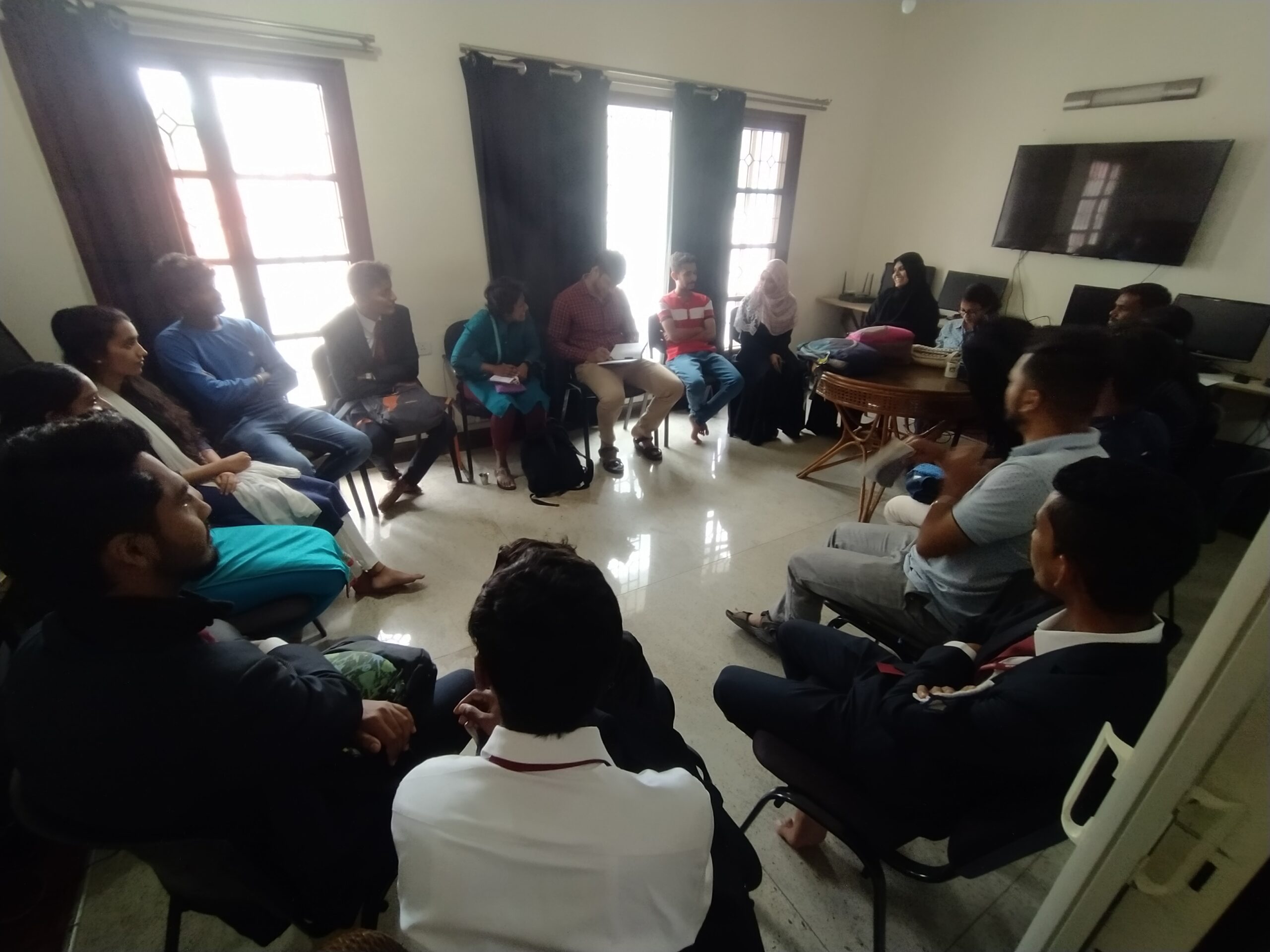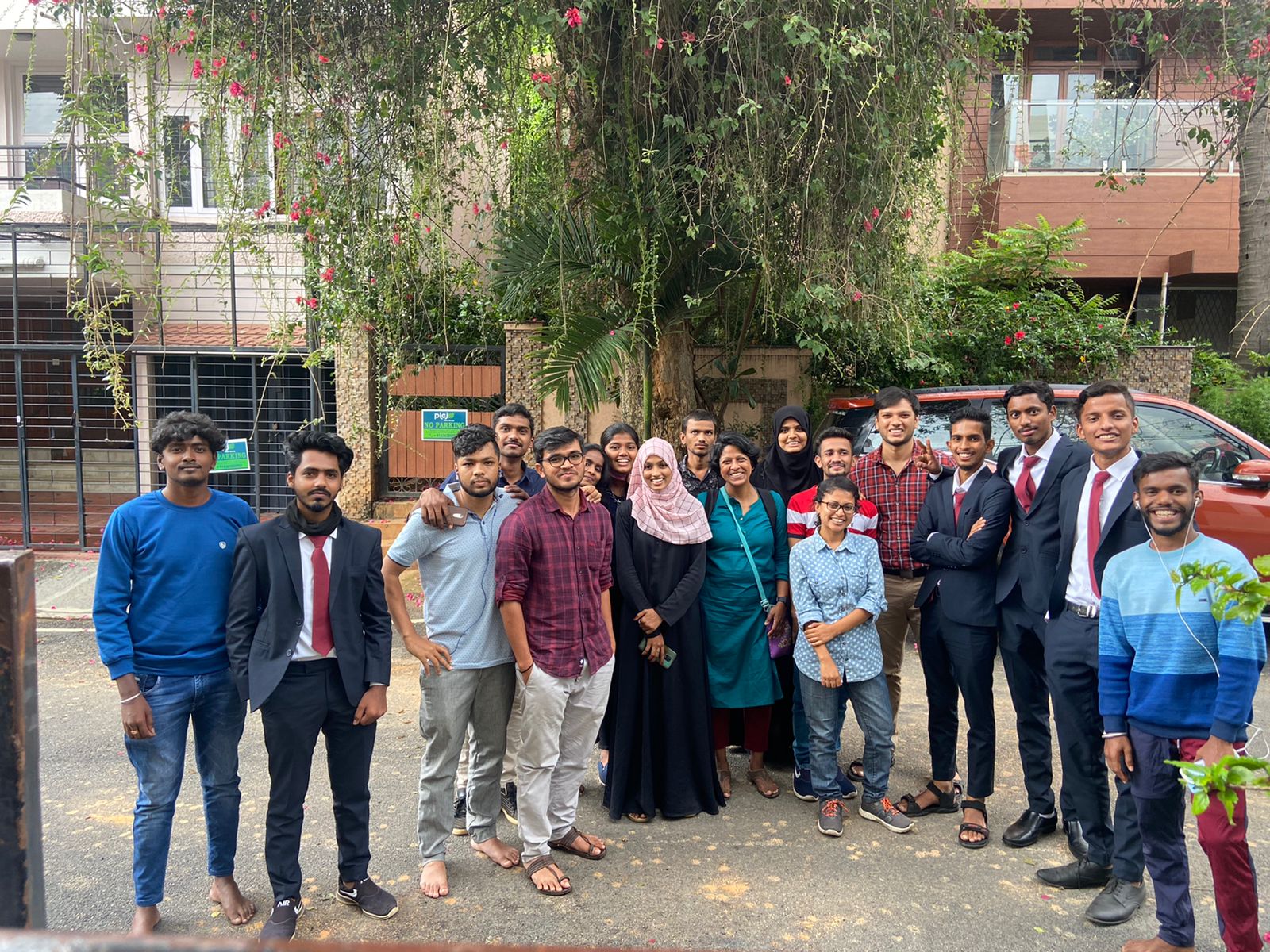News
Bus Stories: Joint discussion with SAMVADA and BBPV
A joint meeting between EQUIMOB researcher (Prajwal Nagesh), Bengaluru Bus Prayanikara Vedike (Shaheen Shasha) and students of SAMVADA (NGO) was organised on 4 September 2021 at SAMVADA office space in South end circle, Bengaluru. The meeting aimed to introduce the youth at SAMVADA to the ‘Bus Stories’ initiative and present them the opportunities to work as field investigators. 
Sitting in a closed circle, the non-virtual meeting setup provided ample opportunities for healthy rapport and interesting discussions. Students, all of them studying Bachelors in different colleges of Bengaluru, emerged from various disciplines. After initial rounds of introduction, the students were presented with a detailed orientation about the EQUIMOB project, BBPV and initiative of Bus Stories. Afterwhich the floor was opened up for discussion.
Bus commute was an everyday reality of most of the students assembled in the hall. Stories emerged from their everyday experiences of using the buses to schools and colleges. Barriers to using buses, particularly the issues in the renewal of annual bus passes, was mentioned consistently. They felt the online process was ‘double work’ due to bureaucratisation compared to the earlier manual version. The requirement to upload ‘digital certificates’ of less than 1MB and good resolution is always a challenge for students who said it would be a problem while using a borrowed mobile handset. The passes are usually issued in February, but the pass validity will be pre-dated from November (previous year) to August (current year), thus forcing students to pay normal fares for a significant part of the year. Further, the students said the discrepancy between the route mentioned in the bus pass and the actual bus routes to the college creates conflict with the bus personnel.
The elements of caste, culture and economic geography of the city were part of the discussion—for example, air-conditioned buses plying mainly in the IT corridors, the class distinction between the bus and metro users, and the question of using display stickers of various religious gods and goddesses in public buses. They also recollected the trust that builds between a user and a bus conductor or driver on a regular route and how assuring it is for their journies. Despite such bonding, students reflected on the question of missing patronage for buses compared to other modes of transport. Building on the idea of Bus Stories, they suggested we could also focus on the voices across the occupational hierarchy of the bus system, for example, the contractual labourers who clean buses and lady conductors.
The latter part of the session was spent discussing more details of the fieldwork planned for Bus Stories. After a series of anecdotes, the discussion shifted more towards the political economy of the bus system and the need for a mobility/city lab to address these larger issues, which require pro-longed engagement. The rich anecdotes, sharp questions and the recognition of the need to engage with everyday experiences provided a promising start to Bus Stories.

